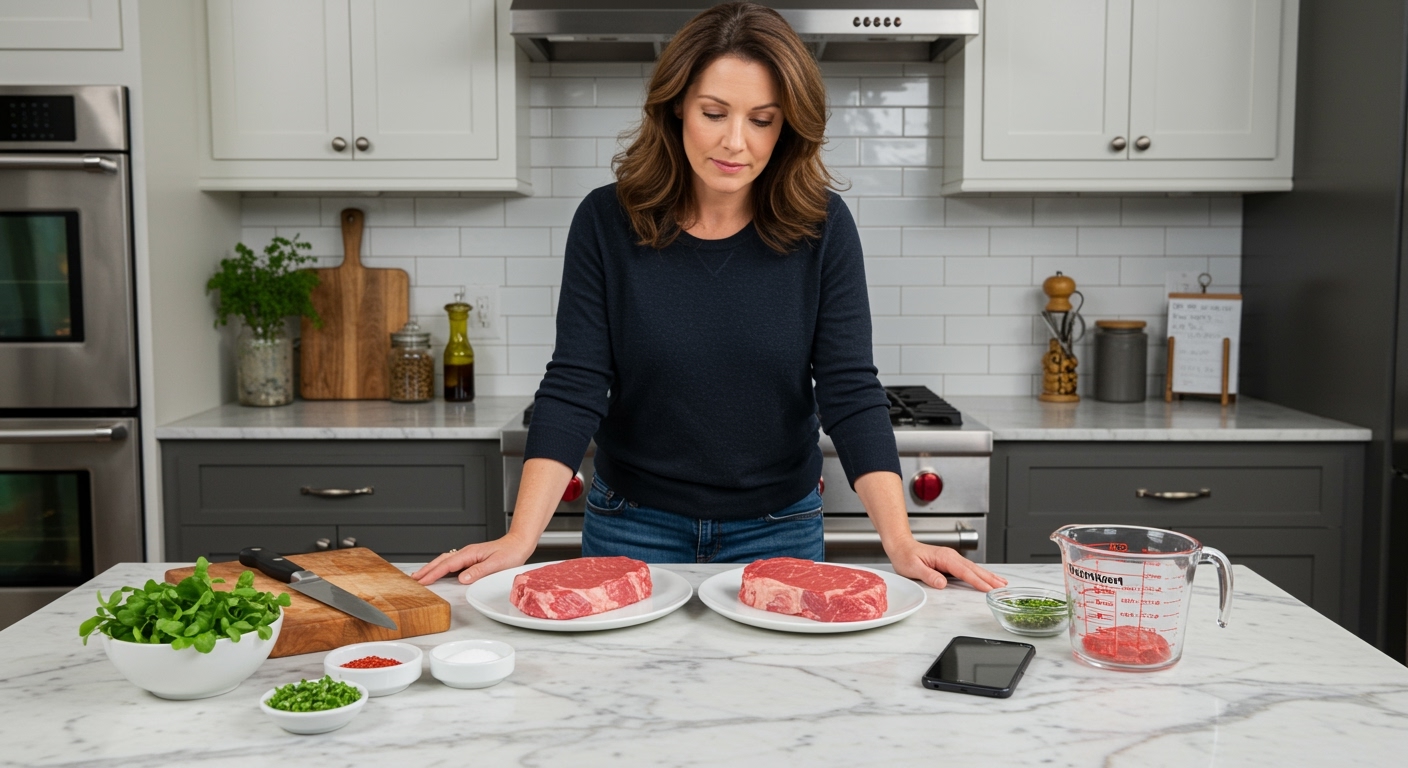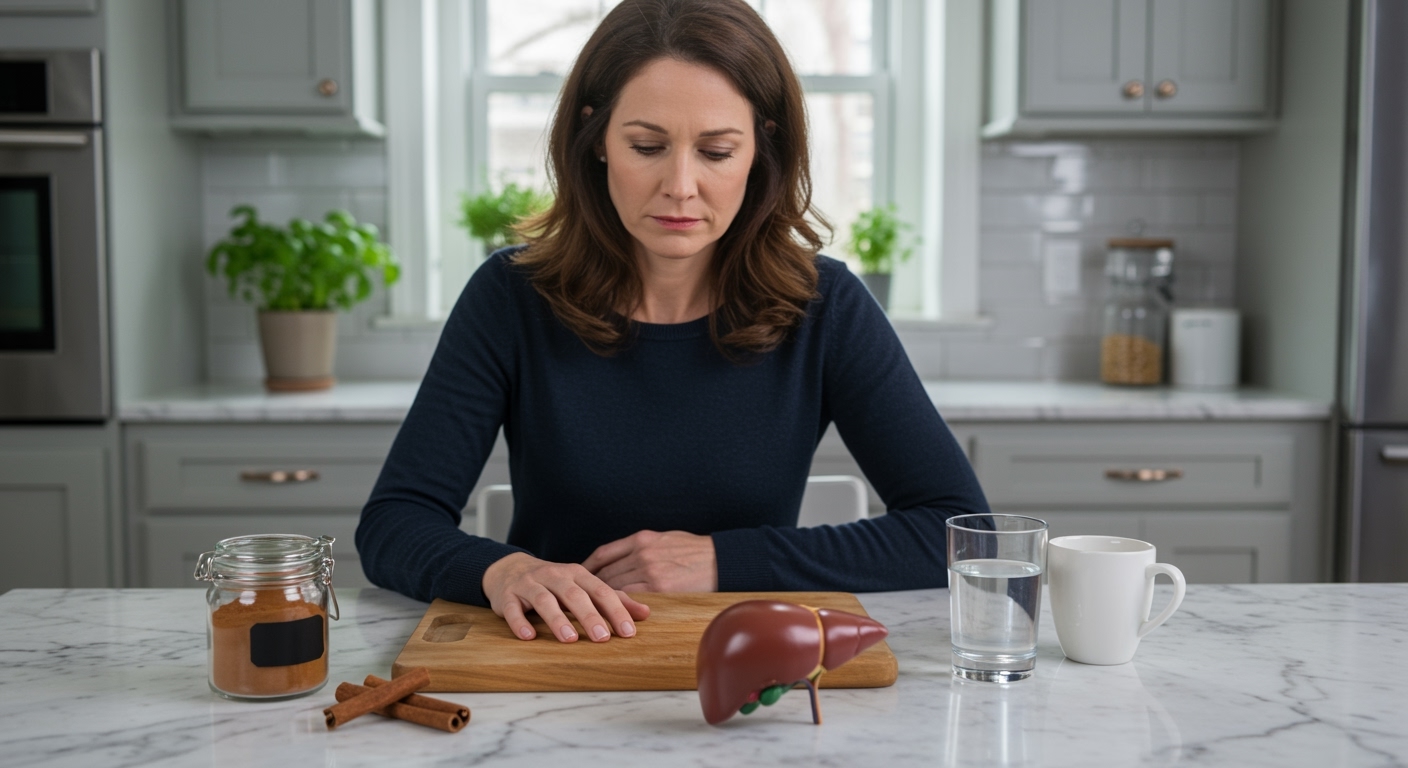✪ Key Takeaway: Soy sauce contains dangerous sodium levels that overwork your kidneys and increase blood pressure over time.
Introduction
You reach for that familiar bottle of soy sauce without thinking twice.
Every drizzle over your rice or dip with your sushi delivers a massive sodium punch that your kidneys struggle to process.
Hi, I’m Abdur, your nutrition coach and today I’m going to explain how this beloved condiment is silently damaging your kidney function through excessive sodium intake.
How Much Sodium Does Soy Sauce Actually Contain?
One tablespoon of regular soy sauce contains approximately 879 milligrams of sodium.
This single serving provides 38% of your entire daily sodium limit recommended by health experts.
Most people use far more than one tablespoon when cooking or dining out.
Restaurant meals often contain multiple tablespoons of soy sauce in marinades, stir-fries, and dipping sauces.
Your body only needs about 500 milligrams of sodium daily to function properly.
The American Heart Association recommends staying under 2,300 milligrams per day, with an ideal limit of 1,500 milligrams for optimal health.
✪ Fact: Light soy sauce contains even more sodium than regular soy sauce, reaching up to 1,000 milligrams per tablespoon.
What Happens When Your Kidneys Process Too Much Sodium?
Your kidneys work as sophisticated filtration systems that maintain proper fluid balance in your body.
When you consume excessive sodium, your kidneys must work harder to excrete the excess through urine.
This process requires your body to retain more water to dilute the sodium concentration.
The increased fluid volume puts extra pressure on your blood vessels and heart.
Over time, this constant overwork causes your kidneys to lose their ability to filter waste efficiently.
The nephrons, which are tiny filtering units in your kidneys, become damaged from the chronic high-pressure environment.
✪ Note: Kidney damage from high sodium intake often shows no symptoms until significant function is already lost.
How Does Soy Sauce Contribute To High Blood Pressure?
High sodium intake from soy sauce directly triggers blood pressure elevation through multiple mechanisms.
Your body responds to excess sodium by increasing blood volume to maintain proper concentration levels.
This increased blood volume forces your heart to pump harder, creating higher pressure against artery walls.
Regular consumption of high-sodium foods like soy sauce keeps your blood pressure chronically elevated.
Studies show that reducing sodium intake by just 1,000 milligrams daily can lower blood pressure by 5-6 mmHg.
High blood pressure damages the delicate blood vessels in your kidneys, creating a dangerous cycle of kidney damage and further blood pressure increases.
✪ Pro Tip: Monitor your blood pressure regularly if you consume soy sauce frequently to catch early warning signs.
What Are The Long-Term Kidney Damage Risks?
Chronic high sodium consumption from soy sauce can lead to chronic kidney disease over years of exposure.
Your kidney function gradually declines as the filtering units become scarred and damaged.
Early stages of kidney disease often show no symptoms, making it a silent health threat.
Advanced kidney damage can require dialysis or kidney transplantation to sustain life.
Research indicates that people consuming high-sodium diets have a 20% higher risk of developing kidney stones.
The combination of high blood pressure and kidney damage creates a dangerous cycle that accelerates both conditions.
✪ Fact: Kidney disease affects over 37 million Americans, with high sodium intake being a major contributing factor.
How Can You Protect Your Kidneys From Soy Sauce Damage?
Start by measuring your soy sauce portions instead of pouring freely from the bottle.
Use low-sodium soy sauce alternatives that contain 25-40% less sodium than regular versions.
Dilute regular soy sauce with water or rice vinegar to reduce sodium concentration while maintaining flavor.
Try coconut aminos as a natural alternative that contains 90% less sodium than traditional soy sauce.
Limit restaurant meals that heavily rely on soy sauce in cooking and ask for sauces on the side.
Increase your potassium intake through fruits and vegetables to help counteract sodium effects on blood pressure.
Drink plenty of water to help your kidneys process and eliminate excess sodium more efficiently.
✪ Pro Tip: Read ingredient labels carefully as soy sauce hides in many processed foods under different names.
The Bottom Line
Soy sauce delivers dangerous amounts of sodium that force your kidneys to work overtime and elevate your blood pressure.
Small changes in how you use condiments today can prevent major kidney problems tomorrow.
I would love to hear about your experiences with reducing sodium intake or any questions you have about protecting your kidney health in the comments below.
References
At NutritionCrown, we use quality and credible sources to ensure our content is accurate and trustworthy. Below are the sources referenced in creating this article:
- Healthline: Is Soy Sauce Bad for You?
- PMC: Sodium Intake and Kidney Disease
- WebMD: What to Know About Soy Sauce
- UC Davis Health: Low Sodium Eating and Blood Pressure





